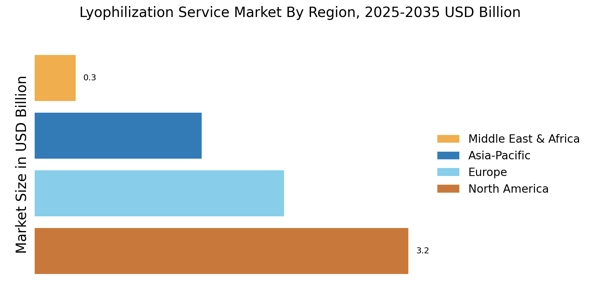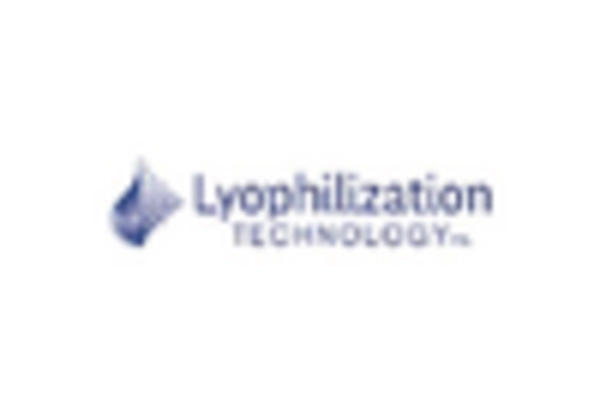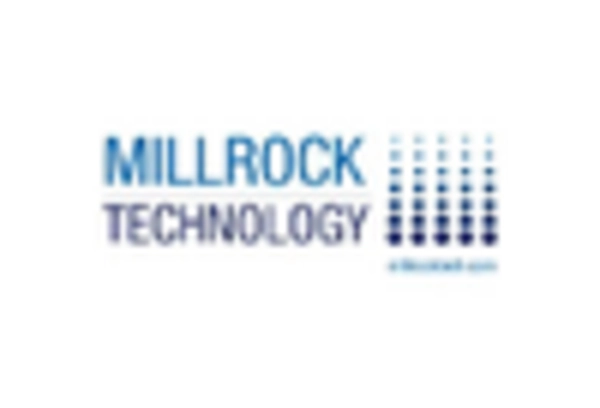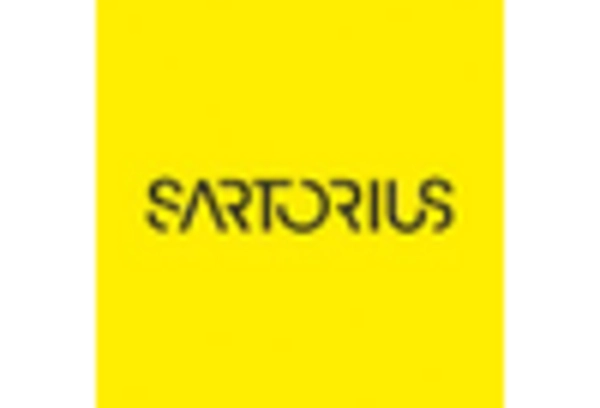Increased Focus on Drug Stability
The emphasis on drug stability is becoming increasingly pronounced within the Lyophilization Service Market. Pharmaceutical companies are recognizing that the stability of their products directly impacts patient safety and therapeutic efficacy. Lyophilization serves as a critical process to enhance the shelf life of drugs, particularly those that are heat-sensitive or prone to degradation. Recent studies indicate that lyophilized products can maintain their potency for extended periods, which is vital for long-term storage and distribution. As regulatory bodies continue to enforce stringent guidelines on drug stability, the demand for lyophilization services is likely to rise. This trend suggests that the Lyophilization Service Market will play a pivotal role in ensuring compliance with these regulations while meeting the needs of pharmaceutical companies.
Growing Preference for Outsourcing
The trend towards outsourcing lyophilization services is gaining momentum within the Lyophilization Service Market. Many pharmaceutical and biotechnology companies are opting to outsource their lyophilization processes to specialized service providers. This shift is driven by the need to reduce operational costs and focus on core competencies. By outsourcing, companies can leverage the expertise and advanced technologies of service providers, which can lead to improved product quality and faster time-to-market. Recent market analyses indicate that the outsourcing segment is projected to account for a significant share of the overall lyophilization services market. This trend suggests that the Lyophilization Service Market will continue to evolve as more companies recognize the benefits of outsourcing.
Rising Demand for Biopharmaceuticals
The increasing demand for biopharmaceuticals is a primary driver of the Lyophilization Service Market. As the biopharmaceutical sector expands, the need for effective preservation methods becomes critical. Lyophilization, or freeze-drying, is essential for maintaining the stability and efficacy of sensitive biological products. According to recent data, the biopharmaceutical market is projected to reach approximately 500 billion USD by 2025, which underscores the growing reliance on lyophilization services. This trend indicates that companies are likely to invest more in lyophilization technologies to ensure product integrity during storage and transportation. Consequently, the Lyophilization Service Market is expected to experience substantial growth as it aligns with the evolving needs of biopharmaceutical manufacturers.
Regulatory Compliance and Quality Assurance
Regulatory compliance is a critical driver for the Lyophilization Service Market. As the pharmaceutical landscape becomes increasingly regulated, companies must adhere to stringent quality assurance standards. Lyophilization processes are subject to rigorous scrutiny by regulatory agencies, necessitating the implementation of best practices in manufacturing and quality control. Companies that utilize lyophilization services must ensure that their products meet these regulatory requirements to avoid costly penalties and product recalls. The growing emphasis on quality assurance is likely to propel the demand for reliable lyophilization services. Industry expert's suggest that the focus on compliance will continue to shape the strategies of companies within the Lyophilization Service Market, driving growth and innovation.
Technological Innovations in Lyophilization
Technological advancements are significantly influencing the Lyophilization Service Market. Innovations in lyophilization equipment and processes are enhancing efficiency and reducing operational costs. For instance, the introduction of advanced control systems and monitoring technologies allows for better process optimization and product quality assurance. Furthermore, the integration of automation in lyophilization processes is streamlining operations, thereby increasing throughput. As companies seek to improve their production capabilities, the adoption of these technologies is likely to accelerate. Market data suggests that the lyophilization equipment segment is expected to grow at a compound annual growth rate of over 8% in the coming years. This growth indicates a robust demand for innovative solutions within the Lyophilization Service Market.

















